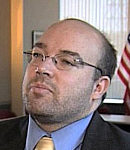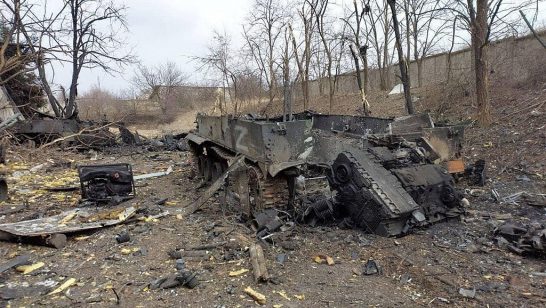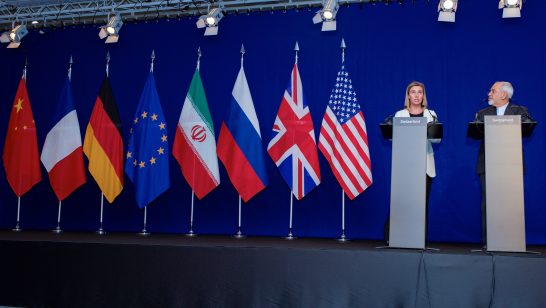
For the past nine months, the consistent message delivered from every Western capital is that “the international community” condemns Russia for its actions in Ukraine – especially its support for armed separatists – and that Vladimir Putin risks global isolation should he fail to desist from continuing to interfere in the affairs of his neighbour. The United States and the leading European states reinforced that message earlier this year by declining to attend a Group of Eight summit in Sochi, instead recreating the original Group of Seven, and by imposing a series of sanctions on leading Russian companies and individuals severely restricting access to Western capital, markets and technology. Yet several of the G-7 members, including Japan, were more hesitant in moving to impose strict sanctions against Moscow. Other major global economies–especially those of the rising powers of the Global South–among them China, India, Brazil and South Africa–outright refused the calls made by U.S. Secretary of State John Kerry and European foreign ministers to enact similar punitive measures against Moscow.
After Malaysian Flight 17 was downed in the skies over eastern Ukraine this past July, killing large numbers of Dutch, Malaysian and Australian nationals (almost certainly as the result of a surface-to-air missile launched by Russian-backed separatists who believed they were targeting a Ukrainian military aircraft) there was talk that the Russian president would be barred from entering Australia to attend the forthcoming Group of Twenty summit meeting. Australian Prime Minister Tony Abbott has confirmed he will pressure Putin to take all necessary steps to bring the perpetrators to justice, but Australian authorities have also acknowledged that initial feelers to see whether a Putin ban on being present in Brisbane would fly returned a general consensus that despite what has transpired in Ukraine, the Russian President needed to be present at this conclave of global leaders.
Indeed, for the last several years, Putin has preferred the G-20 gathering to any smaller forum dominated by Western leaders. In contrast to the G-8, where Russia was usually the odd man out, the G-20 format allows Moscow to confer in the BRICS format with its Brazilian, Chinese, Indian and South African partners and to coordinate some semblance of a common negotiating posture on key issues that will be discussed by the leaders in attendance. At both the Cabo San Lucas gathering in 2012 and the St. Petersburg conclave in 2013, the BRICS bloc, aided by a lack of trans-Atlantic consensus on critical questions (and, in 2013, further divided by the Edward Snowden revelations) prevented the West from dominating the agenda or steering the summit meeting to its preferred conclusions. The Obama administration, in particular, found that its assessment of the Syrian civil war and its desire for a mandate to undertake military action against the regime of Bashar al-Assad was the minority position at the G-20 summit. It was Putin, not President Barack Obama, who was in the driver’s seat, transforming his apparent isolation at the Belfast G-8 summit earlier in 2013 into recasting himself as the global statesman in St. Petersburg.
Some have suggested that Putin will not be able to repeat this performance in Brisbane, and certainly, his actions in Ukraine have raised disquiet not only in Western capitals but also among the rising powers, who tend to be strong defenders of the principles of territorial integrity and non-interference in the affairs of other states. At the same time, despite the unease which countries like India or China have with Putin’s policies in Ukraine, Kremlin hopes that Putin’s successful defiance of Western demands will bring home the message that the rising powers are capable of amending the Western-led global order to suit their preferences and that resistance to Western pressure is possible.
Anticipating the challenge waiting for him at G-20, Putin has been delivering a consistent counter-narrative, most notably in recent remarks to the Valdai Discussion Club in Sochi. He talked there about Western interference in Ukraine precipitating a Russian reaction, adding complaints about the unfairness of the current structure of the global order taken the needs, interests and aspirations of the non-Western rising powers. Putin will arrive in Brisbane with his own agenda. In pushing back against the Euro-American demand for sanctions, the Russians will argue that the West should not have a monopoly for determining the precepts of international law, and that the non-Western powers ought to work together to prevent the West from choking off all the access points to the global economy for other nations.
The G-20 will not produce the hoped-for diplomatic isolation of Vladimir Putin and his Russia. It can serve, however, as a late reminder that the Euro-Atlantic powers must make a renewed and concerted effort to broaden their coalition beyond the G-7 to include the rising powers. They urgently need to show that, in contrast to the Russian narrative, the West is not seeking to lock them out of the global power structure.
The opinions articulated above represent the views of the author(s), and do not necessarily reflect the position of the European Leadership Network or any of its members. The ELN’s aim is to encourage debates that will help develop Europe’s capacity to address the pressing foreign, defence, and security challenges of our time.



